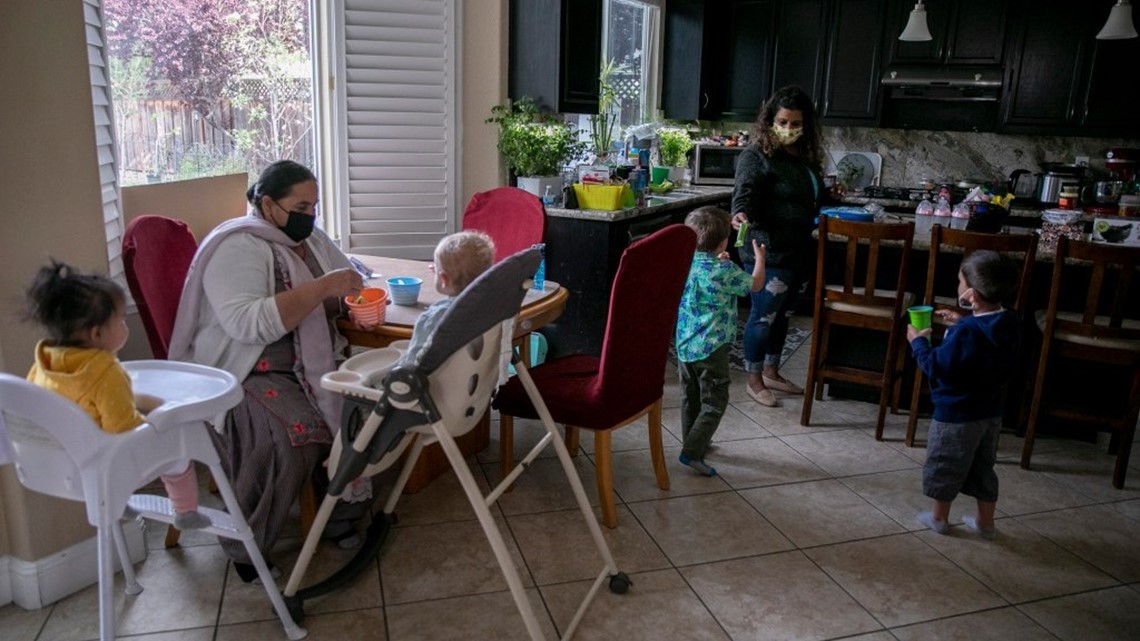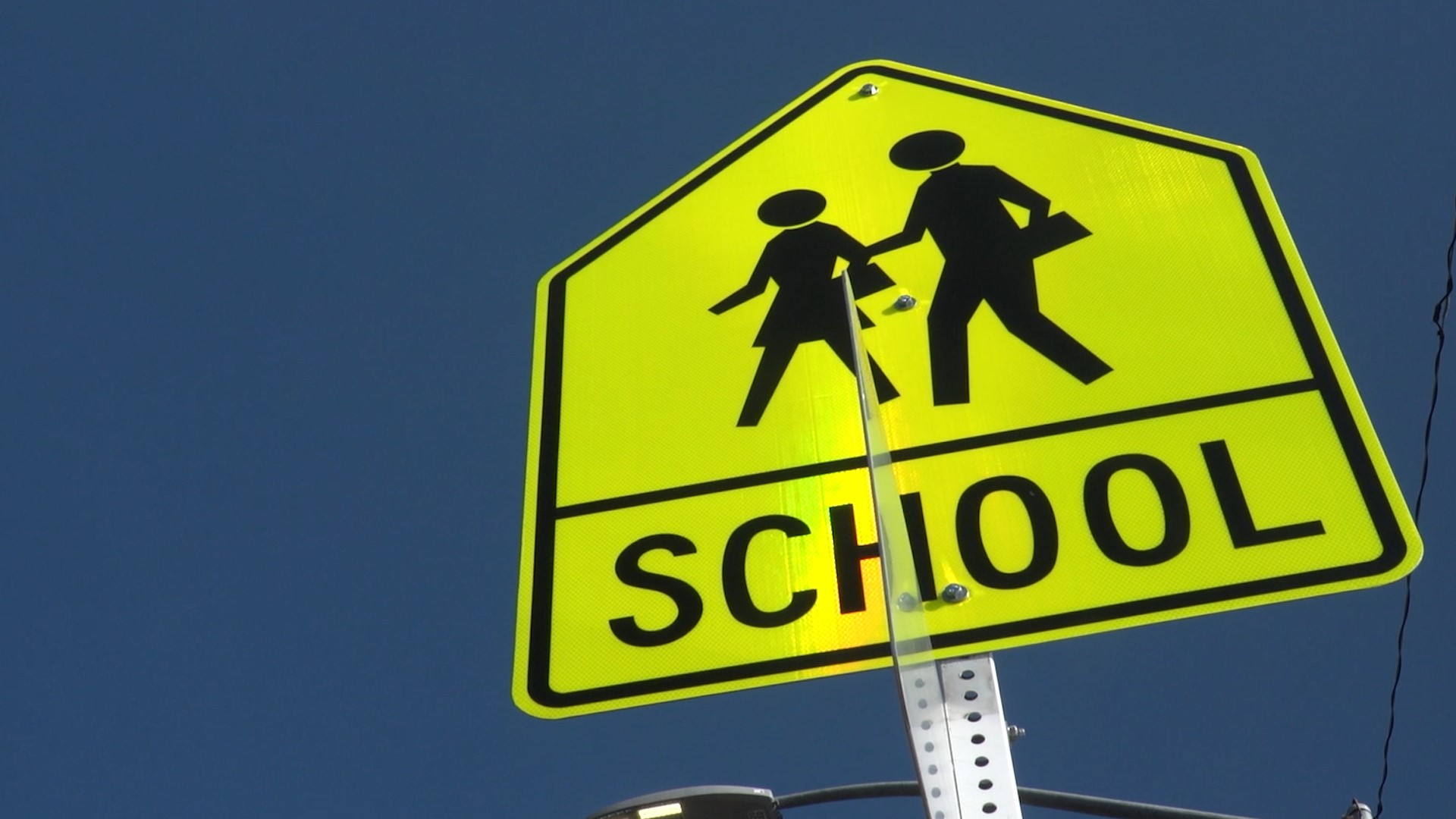LIVERMORE, Calif. — his story was originally published by CalMatters
Child care providers are pushing back against a state plan to restart in-person inspections after a year of sanitizing, social distancing and restricting parents and other outsiders from entering their sites in an effort to keep COVID-19 at bay.
The state notified providers recently that inspections will begin again in the spring. About 2,200 child care providers across California have signed a petition asking the Department of Social Services to hold off on in person inspections and continue doing them virtually but so far the plan remains unchanged.
Providers are concerned that allowing inspectors — who are not required to be vaccinated — into their facilities will expose the providers and children to coronavirus, which could potentially lead to closures and going out of business.
“The government agencies need to think and rethink how to slow the spread of COVID. It’s not gone from our homes and our lives,” said Shruti Agarwal, who runs Shruti Family Day Care in Livermore, in Alameda County, and is president of the Valley Family Child Care Association. “The numbers may have gone down but it’s still there and taking lives.”
Agarwal started the petition asking the state to wait until later in the year to re-start in-person regular compliance inspections. Throughout the last year these inspections have been done virtually. Other types of inspections related to complaints have continued in-person throughout the pandemic.
The Department of Social Services, which oversees the Community Care Licensing Division, said the inspections will begin soon and that there is guidance being developed for the process.
“The Department expects to conduct a higher number of in-person site visits in the coming months and additional details will be available soon when guidance is issued,” wrote spokesperson Scott Murry in an email. He wrote that at first the inspections would be mainly focused on infection mitigation.
Murray also wrote the agency had “not received such a petition,” despite a Bay Area licensing manager assuring Agarwal and other providers on a virtual call that the petition had been routed to higher-ups at Social Services.
The agency declined a request for an interview with an official who oversees licensing, but Murray did answer some questions via email.
This is the latest salvo from child care providers, who have said they feel disrespected and left out of many benefits for essential workers despite having stayed open throughout the pandemic.
In the last year, thousands of sites have closed after children were kept at home and operating costs skyrocketed. Others are barely hanging on. Providers, promised a stipend for caring for subsidized children nearly two months ago, are still waiting for the money to arrive, and the newly formed Child Care Providers United union is in negotiations with the state around increased pay and benefits for providers.
During a question and answer session in March with the Valley Family Child Care Association, Anika Evan, regional manager for the South-East child care office for Community Care Licensing, told a Zoom audience of child care providers that the inspections would begin sometime in April.
“We share your concerns and we elevate them up,” she said to the group. “However, the rules and regulations and things that are being mandated are statewide and they are coming from our governor’s office.”
Evan said that the analysts would be tested once a week for coronavirus, and could visit at least two child care sites a day for at least three days a week. During the unannounced visits, analysts, who conduct the inspections, will enter facilities to look around but then can sit outside if the provider prefers to talk to them there.
In an email, Murray confirmed that all staff would be tested each week, but that they are not required to be vaccinated.
And while child care providers were eligible for vaccination weeks ago, the children they care for are not, so providers worry about being the source of an infection or an outbreak.
“I don’t know where analysts are coming. I don’t know where they have been,” Agarwal said. “They could have been to 10 different places.”


In Compton, 30-year child care provider Renaldo Sanders is stressed out by the new development. She is licensed to care for up to 14 children in her home child care.
“We’ve had to abide by all the new rules — sanitization, disinfecting, buying new equipment like computers, juggling a normal schedule with distance learning,” she said. “We are trying to keep the children happy and adhere to the guidelines and rules.”
She takes temperatures throughout the day, sanitizes toys and tabletops between uses, and is showing kids how to maintain distance from one another by smiling with their eyes or holding their own arms to indicate giving a hug.
So far Sanders has had no cases of COVID-19 tied to her child care.
“I understand we do need a check and balance system in place,” she said. “But it will be exposing a person to our facility that we are not sure about safety-wise.”
These compliance-related inspections, according to providers, involve an analyst walking through the facility checking things like smoke alarms and fire extinguishers, testing cabinet locks and ensuring cleaning supplies are at the ready. They also count the children for compliance and look over paper records.
Visits over the last year have been conducted virtually.
If the state goes ahead with the plan, Agarwal said providers are asking that they get notice of upcoming visits so they can plan and let parents know an outsider will be entering the facility. Many providers have not allowed parents in for nearly a year for safety reasons.
If providers have to be outside with an analyst during an inspection, they also may need to get someone to help them during that day — which would cost them money — in order to maintain the required ratio of adults to children in their child care.
In the past year, many have seen their numbers dwindle as parents lost jobs or kept kids at home, and costs rose due to increased sanitization, virtual learning and new safety guidelines. Agarwal started last year with 12 kids and is now down to six, but said she is committed to staying open for her families.
“We haven’t recovered fully,” she said. “It will be difficult if there is spread.”
Mostly providers worry about their little charges, who can and do get COVID-19 even if they may not have severe symptoms. There have been more than 12,000 cases of COVID associated with child care so far in California.
Agarwal’s no stranger to the fear of COVID-19 coming into her child care. While she has not had a positive case associated with her child care, she did have to shut down for two days recently because some of her kids had runny noses.
She said the Department of Social Services told her it could be a potential COVID-19 exposure and required that all the kids get tested, and said she should report the potential exposure to the county. The county’s public health department ordered her to close until all the children were tested or quarantined, she said. Nobody tested positive for COVID, but one family moved their child to another child care because they could not afford to take time off work while she was closed.
“This is exactly why we are concerned about the inspections,” she said. “No one is going to say cases are because of licensing. It will become the child care’s fault. Then people have to close, lose money, lose clients and people start taking kids out of the program.”
CalMatters coverage of early childhood issues is supported by grants from First 5 Los Angeles and The Ralph M. Parsons Foundation.
CALmatters.org is a nonprofit, nonpartisan media venture explaining California policies and politics

